Empowering Data-Driven Research: Highlights from the IASPER Statistics Workshop in Baguio
In an era where data is paramount, the ability to analyze, interpret, and make sense of it is more crucial than ever. From September 11-13, 2025, our very own Ms. Shiela Dona S. Manlapaz, an Instructor and Faculty Member of the College of Computer Studies, attended a pivotal training event aimed at honing these exact skills. Hosted by the International Association of Scholarly Publishers, Editors and Reviewers (IASPER) at The Orchard Hotel in Baguio City, the “Training-Workshop on Basic and Intermediate Statistics” brought together faculty members, graduate students, and researchers for an intensive three-day dive into the world of statistical analysis.
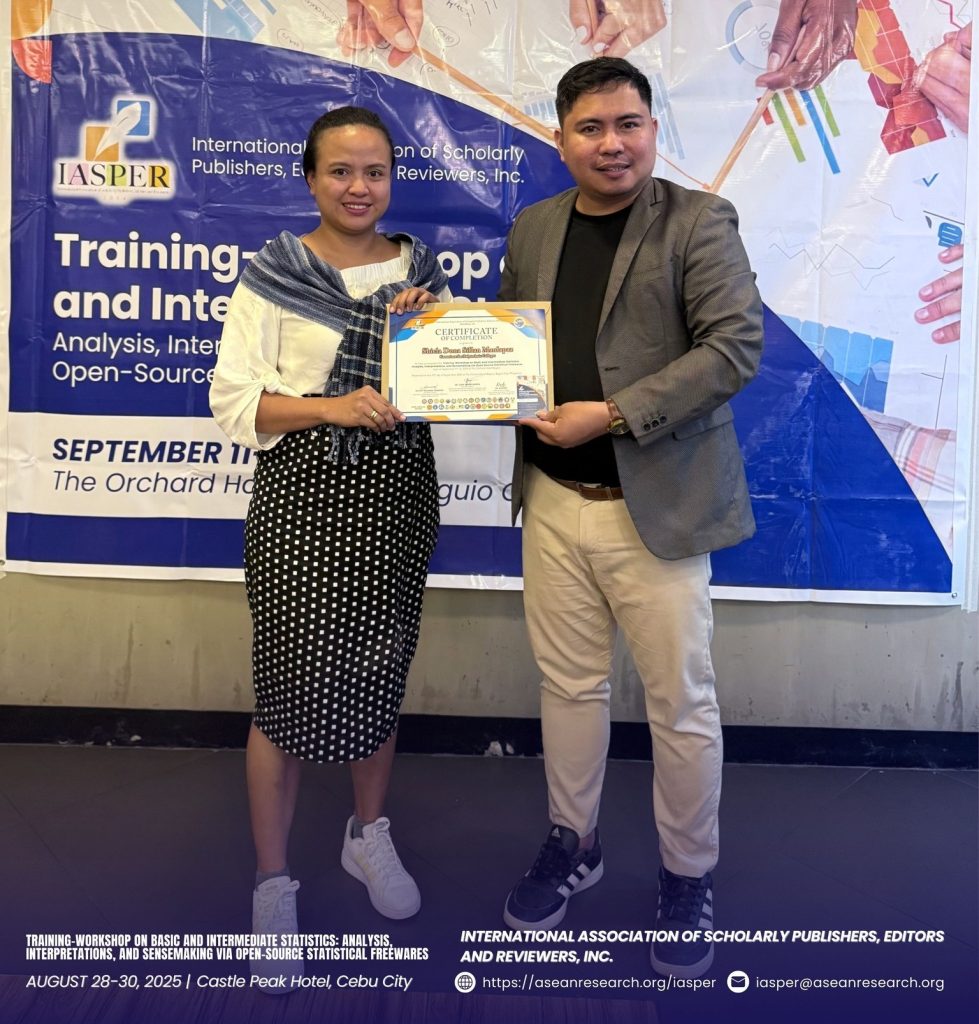
Photo by: International Association of Scholarly Publishers, Editors, & Reviewers
The workshop was designed to strengthen statistical literacy by focusing on practical application through powerful, open-source software. Here’s a look at the key insights and learnings from the event.
Building a Foundation: Data-Driven Mindsets and Ethical Practices
The workshop kicked off by emphasizing the importance of becoming a data-driven researcher. The opening sessions highlighted the need for evidence-based decision-making and scientific accountability in both research and teaching.
Participants reviewed fundamental concepts, including:
- Types of data and the scales of measurement (nominal, ordinal, interval, and ratio).
- Core statistical concepts like mean, median, mode, standard deviation, p-values, and confidence intervals.
- The critical distinction between correlation and causation.
- The ethical use of statistics, with a strong reminder to ensure transparency, avoid “cherry-picking” results, and always acknowledge the limitations of data.
Harnessing Open-Source Tools for Deeper Analysis
A central theme of the workshop was the democratization of data analysis. The sessions provided hands-on training with accessible, free software like JASP, Jamovi, and PSPP. On the first day, attendees were guided through the installation of Jamovi, ensuring everyone was equipped for the practical sessions that followed.
The second day moved from foundational knowledge to more advanced methods. The morning focused on analyzing the relationships between variables, covering techniques such as:
- Pearson Correlation: Using scatterplots to understand the magnitude, direction, and shape of relationships between variables. A key lesson was that statistical significance does not always mean practical importance.
- Bivariate Linear Regression: Studying regression coefficients, residuals, and goodness of fit to build predictive models.
- Nonparametric Measures: For nominal and ordinal data, the workshop explored the appropriate uses for Chi-square, Phi, Cramer’s V, Spearman’s rho, and Kendall’s tau.
Ensuring Research Quality and Uncovering Hidden Structures
The final day focused on the critical aspects of reliability, validity, and advanced analytical techniques.
- Reliability and Validity: Discussions covered how reliability ensures consistency in measurement, while validity confirms the accuracy of the inferences drawn from data. The session explored various types, including content, construct, and criterion validity, as well as test-retest and internal consistency reliability. Both quantitative and qualitative perspectives were addressed, underscoring dependability and confirmability in qualitative research.
- Exploratory Factor Analysis (EFA): Participants learned how EFA can be used to uncover the underlying structure in large datasets by identifying latent variables. The session covered key steps from item preparation and factor extraction to rotation and interpretation, including the use of the Kaiser-Meyer-Olkin (KMO) Index to check for sampling adequacy.
The event concluded with a hands-on workshop where participants used JAMOVI to perform reliability tests and EFA, cementing the theoretical knowledge with practical application.
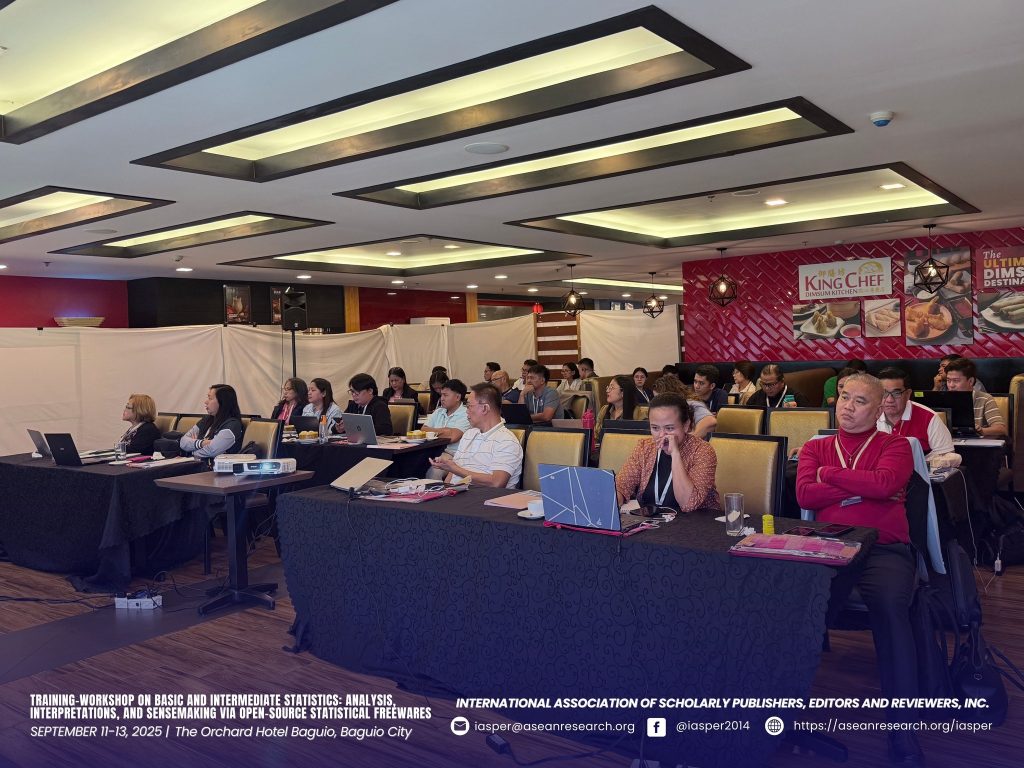
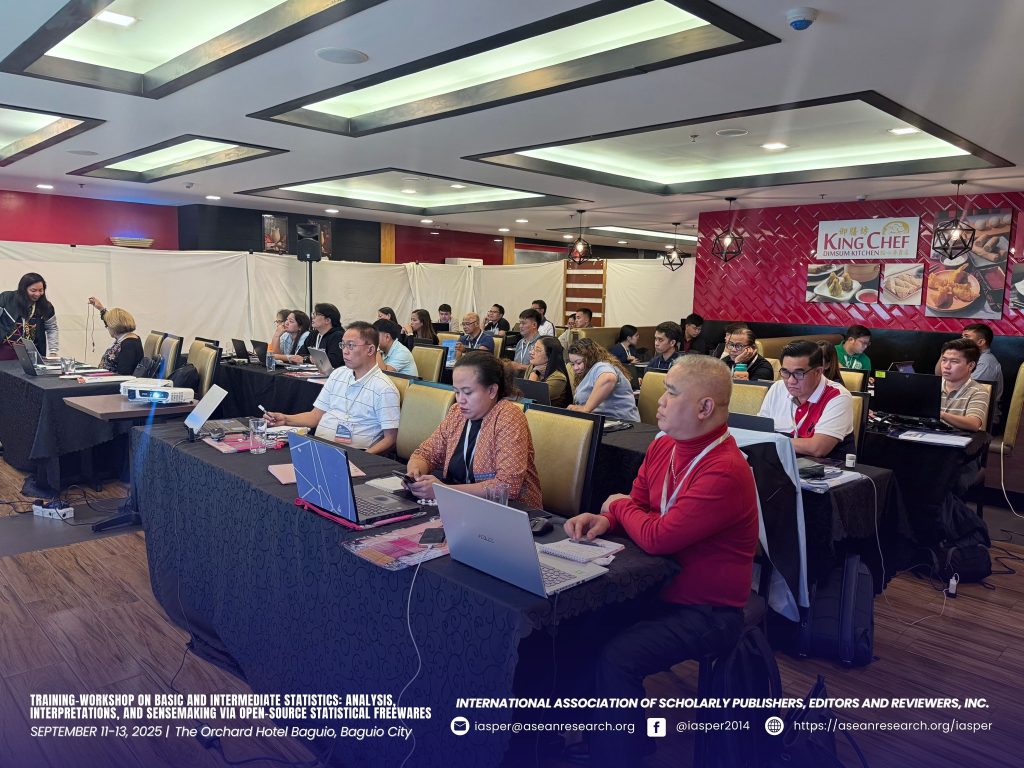
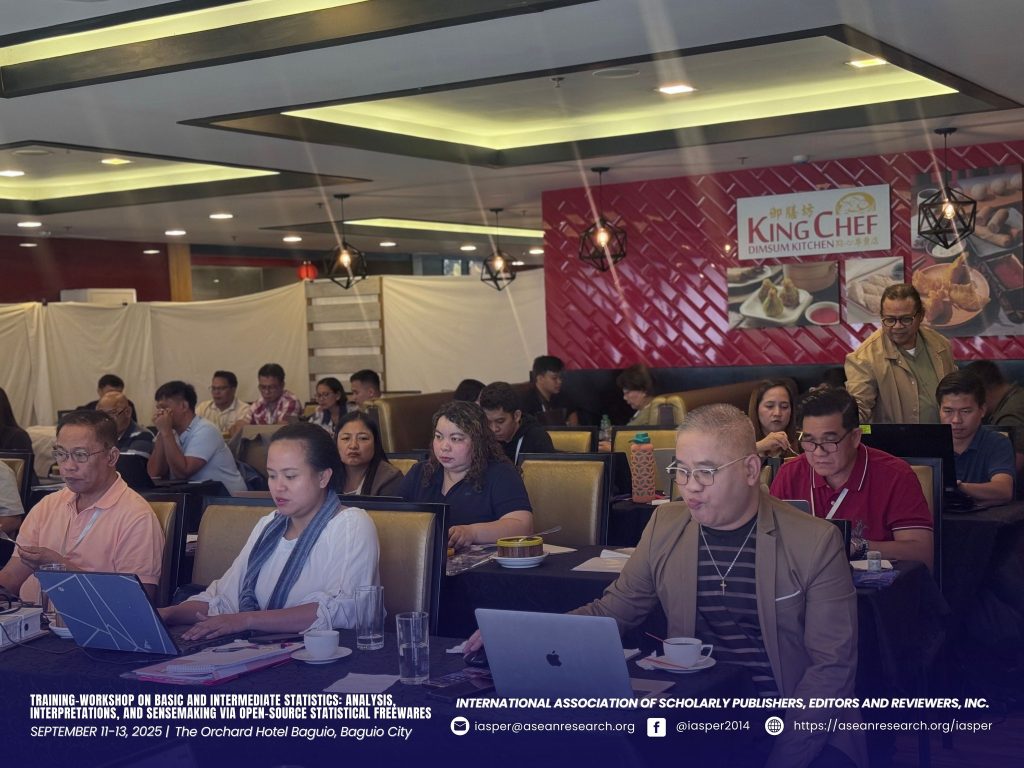
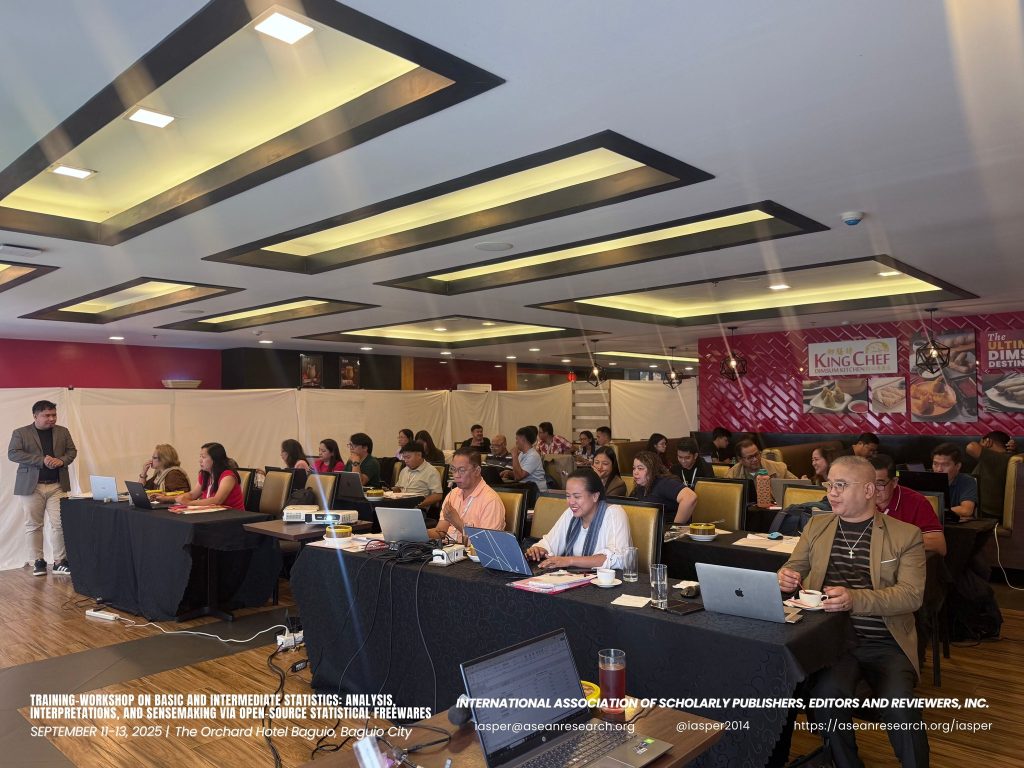
Photos by: International Association of Scholarly Publishers, Editors, & Reviewers
Bringing the Knowledge Home
The benefits of this training are both immediate and long-term. Ms. Manlapaz noted a strengthened capability in using open-source tools for statistical analysis, which will reduce reliance on costly proprietary software. This enhances her ability to interpret and apply statistical findings in her own research and classroom instruction.
To translate these benefits into direct action, Ms. Manlapaz has developed a Learning Application Plan. Her objective for the first semester of AY 2025–2026 is to integrate these open-source statistical tools into her research and statistics courses. This will involve conducting demo sessions for students using JASP and Jamovi and preparing lab exercises with real-world datasets, ultimately empowering the next generation of researchers with the skills they need to excel.
